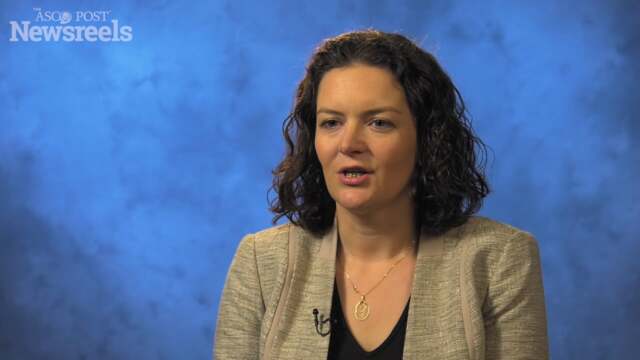Ethan M. Basch, MD, on Symptom Control and Quality: The Patient’s Voice
2017 Quality Care Symposium
Ethan M. Basch, MD, of The University of North Carolina at Chapel Hill, discusses programs—now rolling out at various institutions—that use direct patient reporting of symptoms as a part of quality assessment (Posters 61, 81; Abstract 218).
John V. Cox, DO, MBA, of the Parkland Health System/UTSW, discusses some of the key presentations at the 2017 Quality Care Symposium (Abstracts 3, 37, 52).
Nicole Mittmann, PhD, of the Sunnybrook Health Sciences Centre, discusses her study findings on transitioning breast cancer survivors to primary care and the savings in resources and dollars that accrued as a result (Abstract 1).
Blase N. Polite, MD, MPP, of the University of Chicago, discusses implementing the Oncology Care Model in an academic health center and the challenges of getting buy-in from faculty members.
Caleb Dulaney, MD, of the University of Alabama at Birmingham, discusses ways to broaden and improve the quality of information that women with breast cancer find—in English and Spanish—on websites of nationally recognized cancer centers (Abstract 135).
Julie Bryar Porter, MS, of Stanford Health Care, discusses an approach to improving patient care with physician-led quality measures from diagnosis through end of life implemented at her academic cancer center (Abstract 49).





